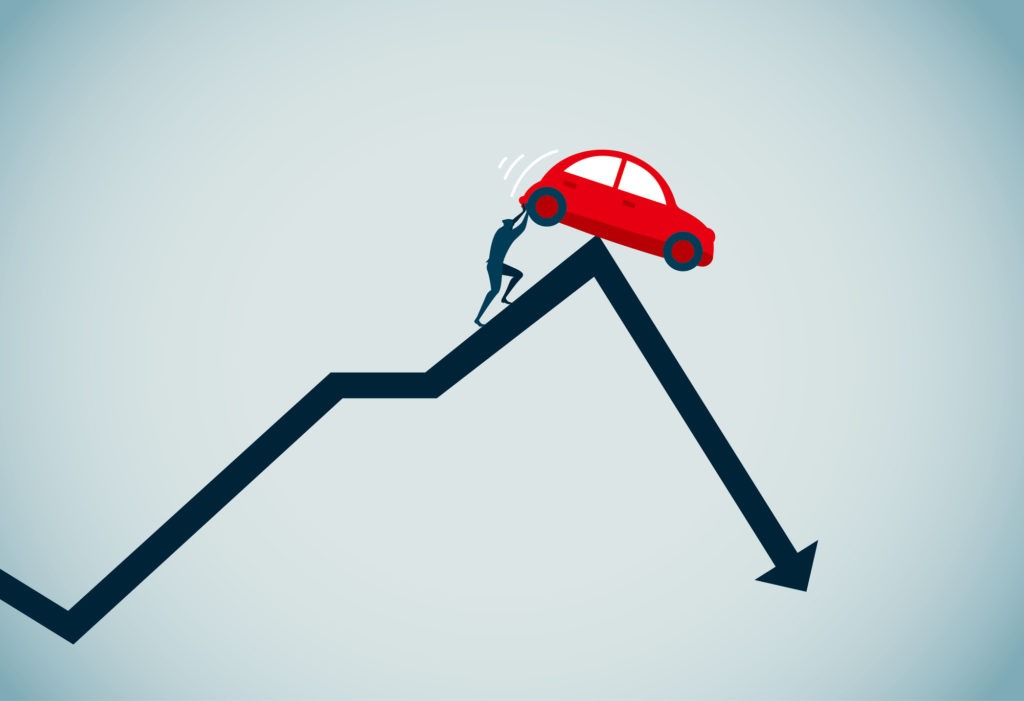Struggle continues in April for EU new-car registrations
19 May 2021

Furthermore, the decline in the month, compared to 2019, was greater than the 16% contraction in March. This highlights the struggle of the automotive sector to recover, especially as it also continues to be plagued by the shortage of semiconductors. According to the latest new-car registration figures released by the European Automobile Manufacturers’ Association (ACEA), the majority of markets suffered double-digit declines in April compared to 2019. The exceptions were Denmark, Estonia and Finland, which declined by less than 10%. Outside of the EU, registrations were 17% higher in Norway than in the same month in 2019
A recovery was not secured in April for new-car registrations in the EU as the market contracted by 24.6%, compared with 2019 market figures, with volume almost 300,000 units lower. The 2019 comparison is more meaningful than the low base in 2020 because of the COVID-19 pandemic.
April harder than March
All the big four EU new-car markets are struggling to overcome the fallout from the COVID-19 pandemic, with greater downturns, compared to 2019, in April than in March.
Only 140,426 new cars were registered in France – far below the average of 175,000 registrations for the month between 2010 and 2019. Moreover, the French market’s seasonally-adjusted annualised rate (SAAR) fell to 1.63 million units last month – the lowest level since November, when dealers were closed for most of the month.
New-car registrations in Germany amounted to 229,650 units in April, equating to a decline of 26.1% compared to the same month in 2019. With the conditional reopening of dealerships in Germany since 8 March, the new-car market appeared to be on the slow road to recovery. However, the level of registrations retreated in April as the country battled against stubbornly consistent COVID-19 infection rates.
In Italy, the new-car market contracted by 17.1% compared to April 2019, despite the introduction of incentives to stimulate demand for cleaner cars at the start of the year. This follows a decline of 12.7% in March.
Among the major markets, the greatest decline was in Spain. With 78,595 new cars registered during the month, the 34.2% drop was larger than in March (down 30%). Only Croatia and Cyprus contracted more, with respective downturns of 52.1% and 37.3% compared to April 2019.
Year-to-date deterioration
Following the poor performance of the new-car market in April, the year-to-date comparison against 2019 has deteriorated to a fall of 23.5%. The majority of markets endured double-digit declines, except for single-digit contractions in Estonia, Finland and Hungary. However, in Sweden, new-car registrations through April are 8.3% higher than in the first four months of 2019.
Compared to 2019, the French market is one fifth smaller in the year-to-date. Although dealers have remained open in France, some sales channels continue to struggle because of restrictions in the country.
Downward revisions
Assuming no further COVID-19 restrictions are introduced, Autovista Group forecasts that the new-car market will grow by 8% in 2021, following the 25% contraction in 2020, to close to 1.8 million units. This is a slight downward revision of the 10% growth previously forecast by Autovista Group for 2021, and is 19.5% lower than the volume of cars registered in pre-crisis 2019.
In the first four months of 2021, the year-to-date contraction in Germany, compared to the same period in 2019, has fallen to 25.6%. The vaccination rollout is gathering pace and the number of new COVID-19 cases is lowering, but the recovery of the German market will come later than previously anticipated. Accordingly, Autovista Group has reduced its forecast for 2021 to 3.06 million new-car registrations, up just 5% on 2020 and 15% lower than 2019.
Registrations were 16.9% lower in the year-to-date in Italy than in the first four months of 2019. Furthermore, the weaker comparison to 2019 than in March suggests that the positive impact of the new incentives is diminishing. As it stands, these are in place until at least the end of June. Assuming there are no further COVID-19 restrictions, Autovista Group forecasts that the market will grow 17% year on year in 2021, to over 1.6 million units, but this would still be 15.7% down on the 2019 level.
In the first four months of this year, 39.3% fewer cars were registered in Spain than in the same period in 2019. The country introduced the new MOVES III incentive scheme for electrically-chargeable vehicles (EVs) on 10 April 2021, which includes hydrogen fuel-cell vehicles (FCEVs) for the first time. However, without an improvement in consumer confidence, a return of tourism, and/or new measures to stimulate new-car demand, the Spanish market will continue to struggle. Autovista Group maintains its forecast that demand will recover from the 32% loss in 2020, albeit only by 6% to about 900,000 units in 2021. Moreover, at this level, the Spanish market will be 28.3% smaller this year than in 2019.